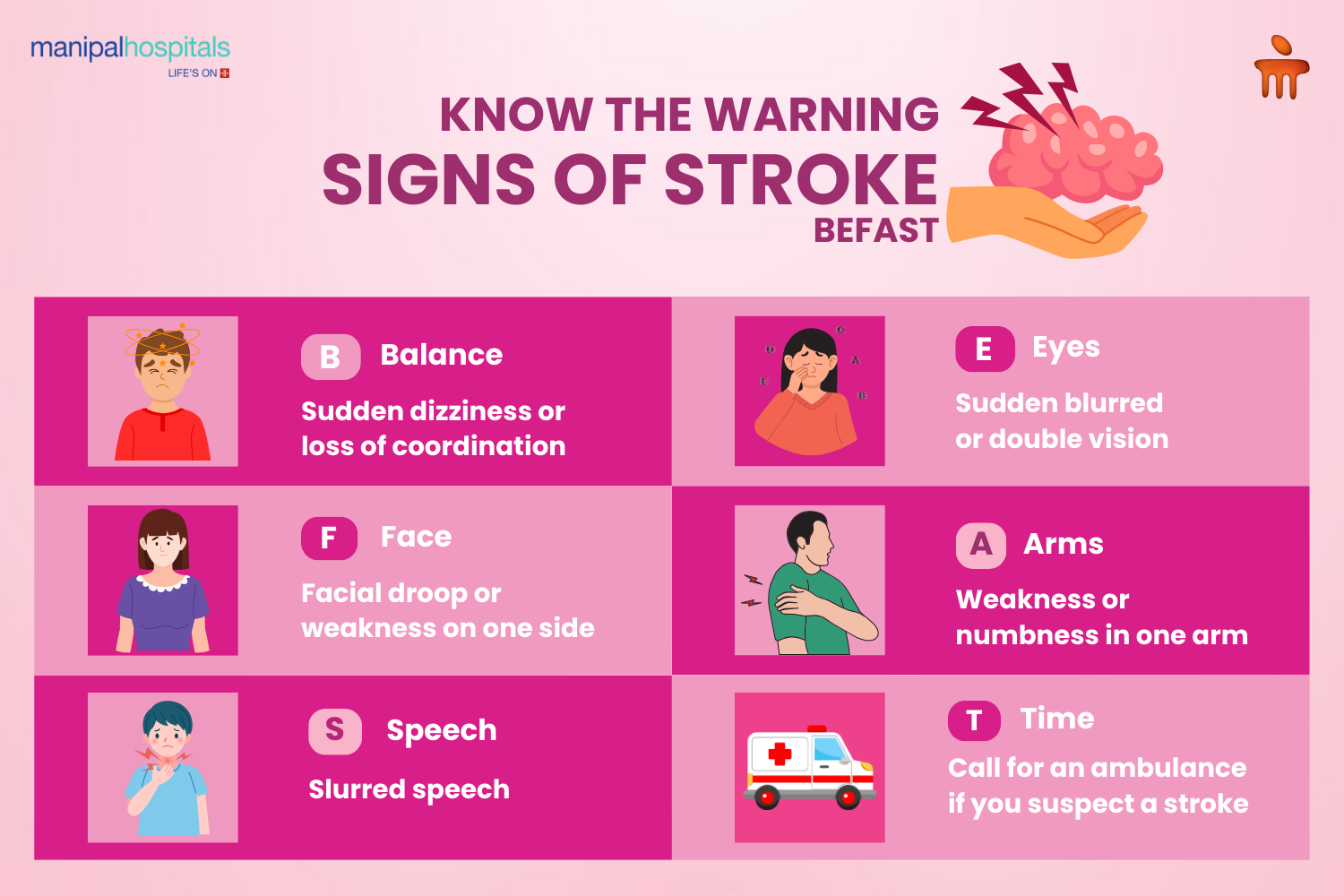
Stroke has traditionally been associated with older adults, but recent studies reveal a concerning rise in stroke cases among the younger population. Individuals below the age of 40 fall into the category of "strokes in the young age group". Unexpected strokes can have severe consequences, including paralysis, speech impairment, and even death. Unfortunately, many young people don’t believe they are at risk of a stroke, which leads to neglecting preventive measures. However, it is crucial for younger individuals to be vigilant in order to avoid the future risk of stroke. In this blog, we will explore how the younger generation can play a role in preventing strokes and their occurrence of stroke through lifestyle changes, recognising risk factors, and identifying early signs that warrant medical attention.
Stroke: Types and Risks for Young People

A stroke can be characterised as a condition in which the blood supply to the brain is interrupted, effectively depriving your brain cells of oxygen. Immediate treatment should be sought, as brain cells begin to die within a few minutes. There are two main types of strokes:
-
Ischemic Stroke - This is a more common type in young individuals and arises when a blood clot plugs an artery supplying the brain.
-
Hemorrhagic Stroke - Far rarer than the primary form, it occurs when a small, fragile vessel in the brain haemorrhages, leading to bleeding.
Even though strokes are typical for the elderly population, they can be equally fatal for young people. Both types of strokes can occur in young individuals, and both are equally dangerous. Diabetes, smoking, hypertension, and alcohol are some of the typical stroke causes, but there are other potential causes, such as heart diseases, that need to be investigated. The proportion of other causes is higher in this younger age group.
Preventing Strokes: Focus on the Five S’s
To lower the risk of stroke, young people should focus on addressing the Five S’s: Sleep, Stress, Salt, Smoking, and Sweet. All these factors are very relevant when it comes to the risks of a stroke.
|
Factor |
Impact on Stroke Risk |
Action Steps |
|
Sleep |
Fragmentary sleep, insufficient sleep, and sleep apnea are dangerous for stroke. |
Sleep 7-8 hours without disruption and treat sleeping disorders. |
|
Stress |
Those under chronic stress get hypertension. Thus, having heart diseases and strokes. |
Try to avoid stress by using relaxation methods, yoga, or meditation. |
|
Salt |
Eating salt raises blood pressure, and high BP has been linked to increased chances of getting a stroke. |
Lower your sodium intake and learn to include fruit, vegetables, and whole grains in your diet. |
|
Smoking |
Smoking constricts blood vessels and encourages the formation of a blood clot, raising stroke likelihood. |
Give up smoking as early as possible to save your cardiovascular system. |
|
Sweet |
Drinking large amounts of soda every day contributes to diabetes and is likely to increase the risk of stroke. |
Be diligent about sugar, especially if you’re diabetic. Eat low glycemic index foods, avoid foods with refined sugars & eat healthy for normal blood sugar levels. |
Another modifiable risk factor for stroke is obesity, which can be avoided by regular physical activity and diet. Maintaining a normal BMI is imperative – you can start by engaging yourself in a minimum of 30 minutes of morning and evening walking. Ideally, allocate some time for exercise in a day (24-hour period). A healthy diet complements these efforts. By focusing on these aspects, we can promote overall well-being.
A comprehensive approach, including a thorough cardiac evaluation, an angiogram of the brain to assess intracranial conditions, and specialised tests can further help identify your stroke risk, including hereditary causes. An evaluation to rule out dissection (an important cause of stroke in the young population) is also required.
A stroke is a serious medical condition. Young individuals are becoming increasingly susceptible to such ailments, but there are proactive steps you can take to mitigate this risk. Educate yourself, make informed lifestyle choices, and always remember that your health is in your hands.
FAQ's
Some of the essential risk factors include hypertension, diabetes, use of tobacco, alcohol use, the presence of high levels of cholesterol, being overweight, and having a family history of the disease. All these factors require to be managed for effective prevention of stroke.
Consuming a healthy diet, not smoking, taking measures to control stressful situations, sleeping well, and exercising frequently can all help a young person reduce the risk of having a stroke.
Young adults should watch for these stroke warning signs.
BE-FAST: Balance issues, Eyesight changes, Facial drooping, Arm weakness, Speech difficulties, and Time to call emergency services immediately.



















 3 Min Read
3 Min Read












